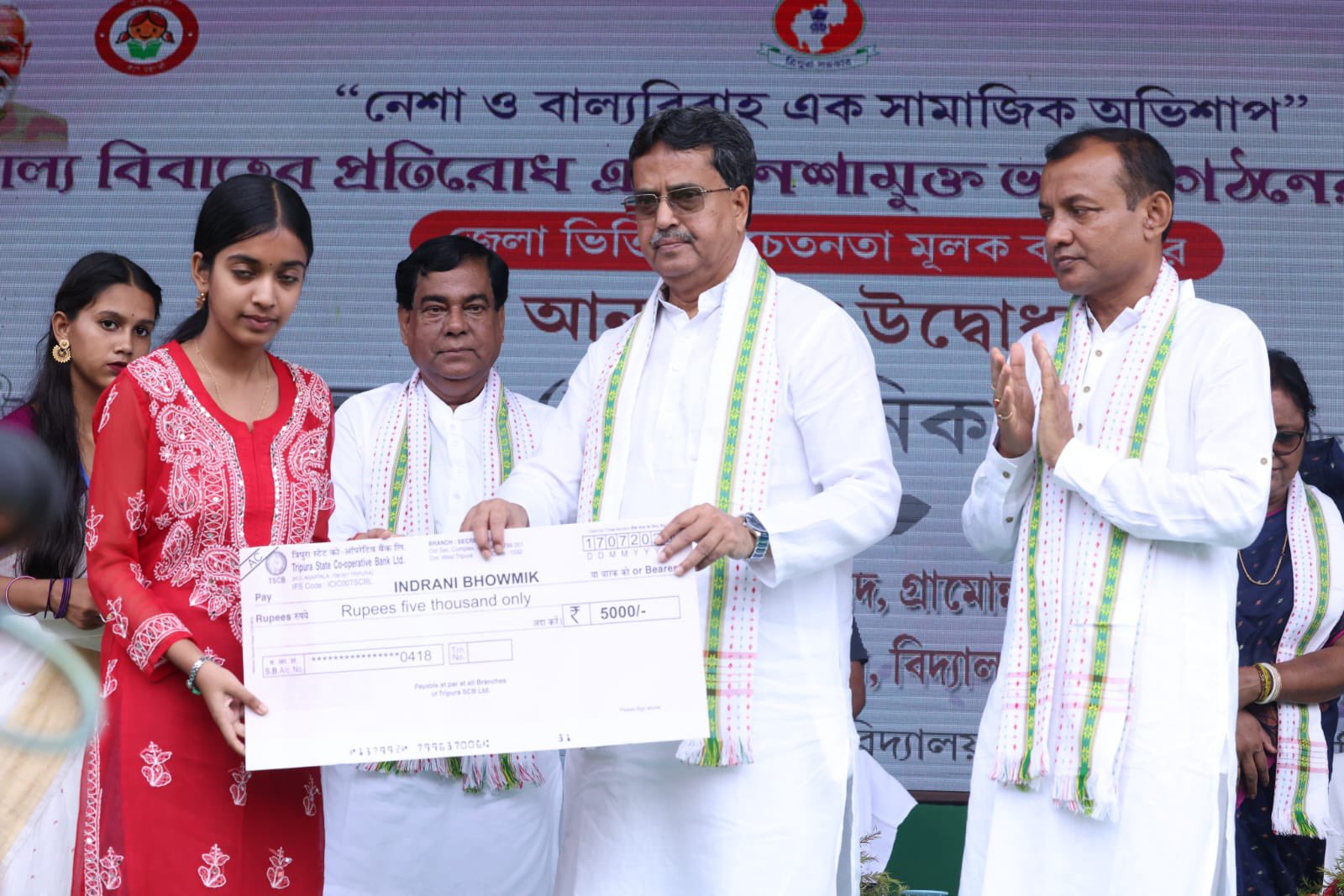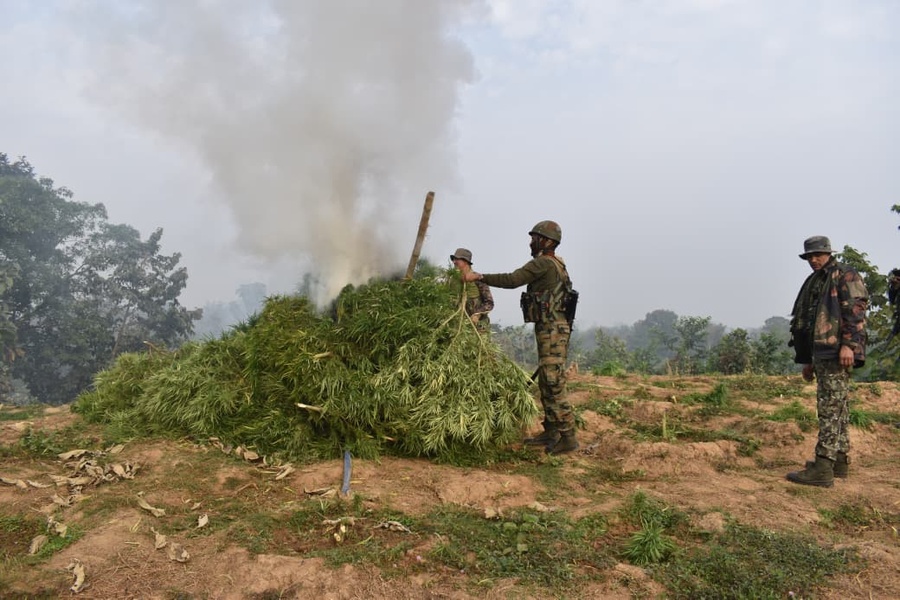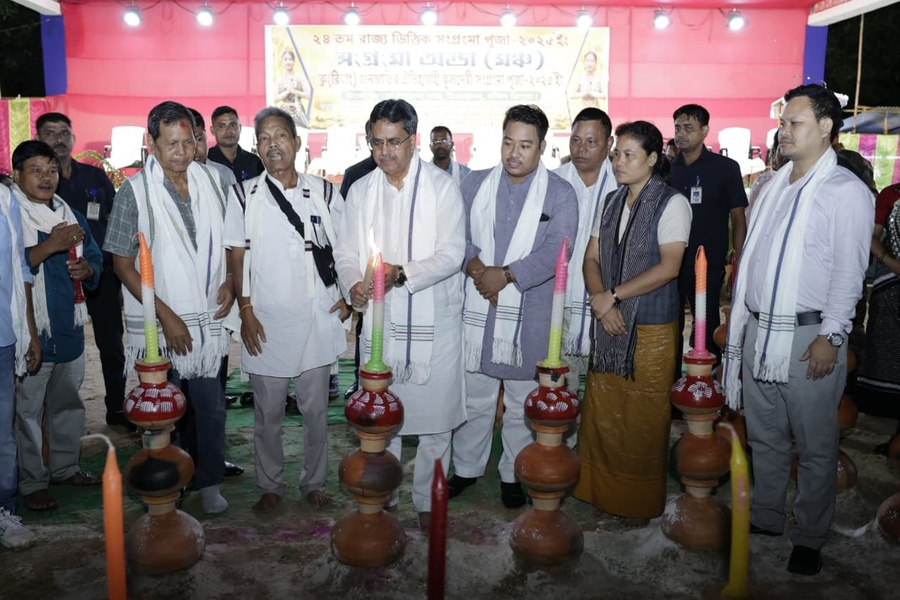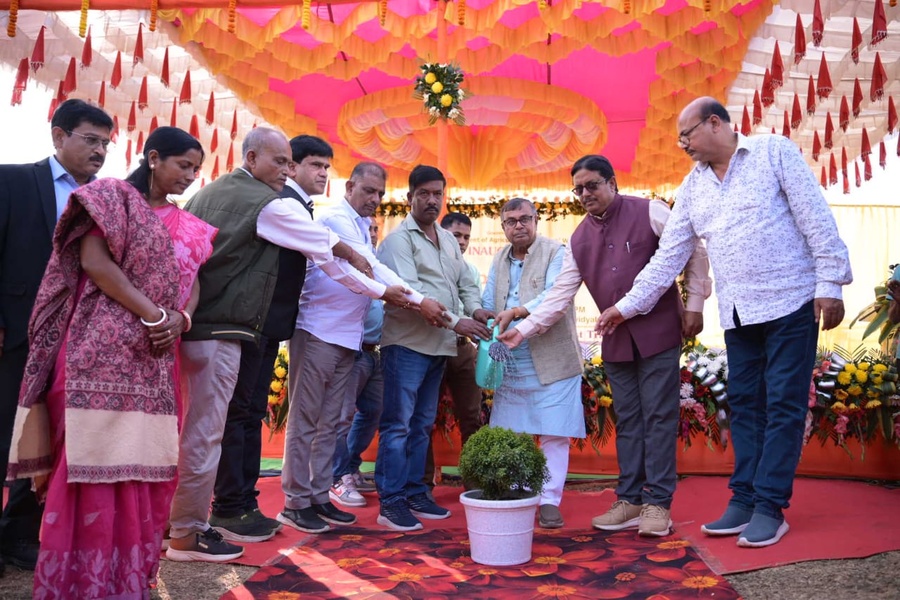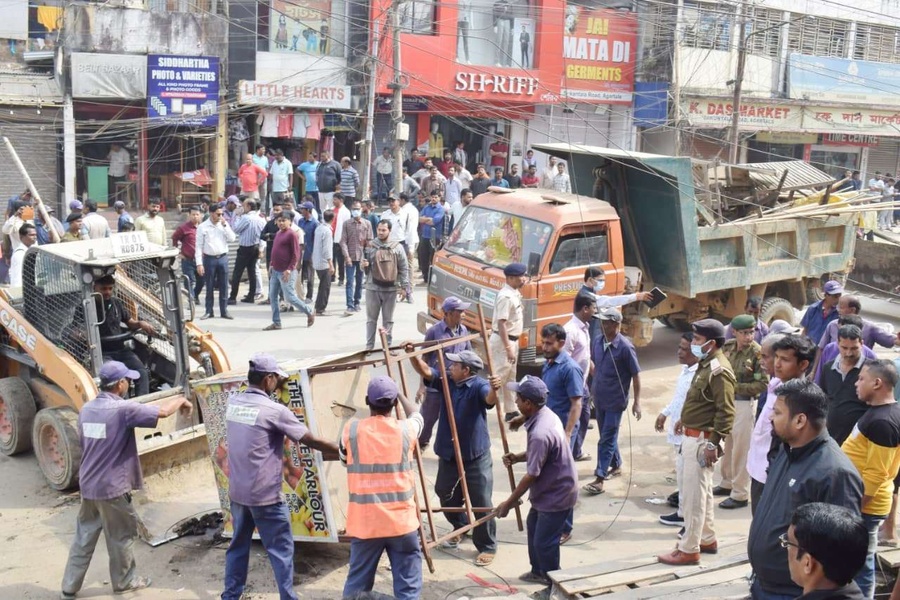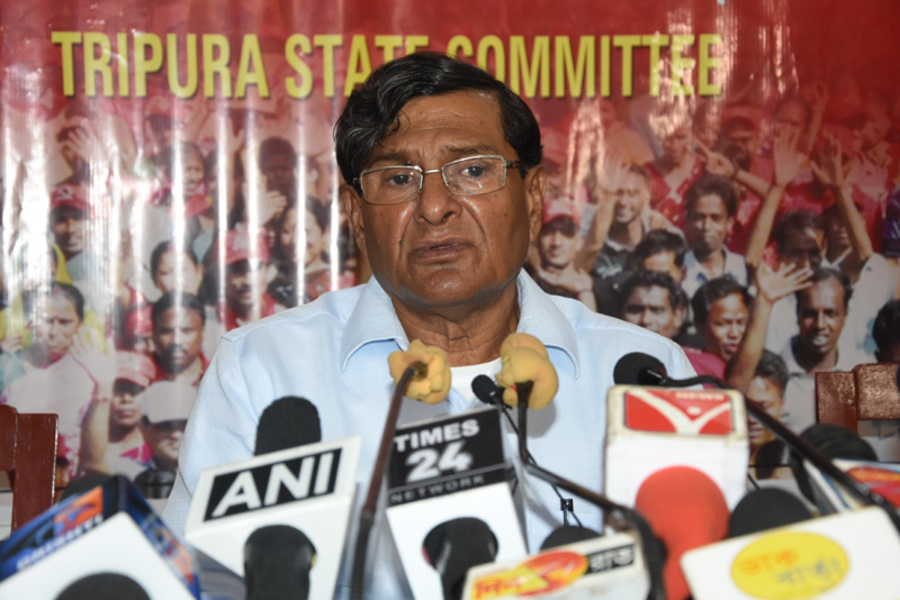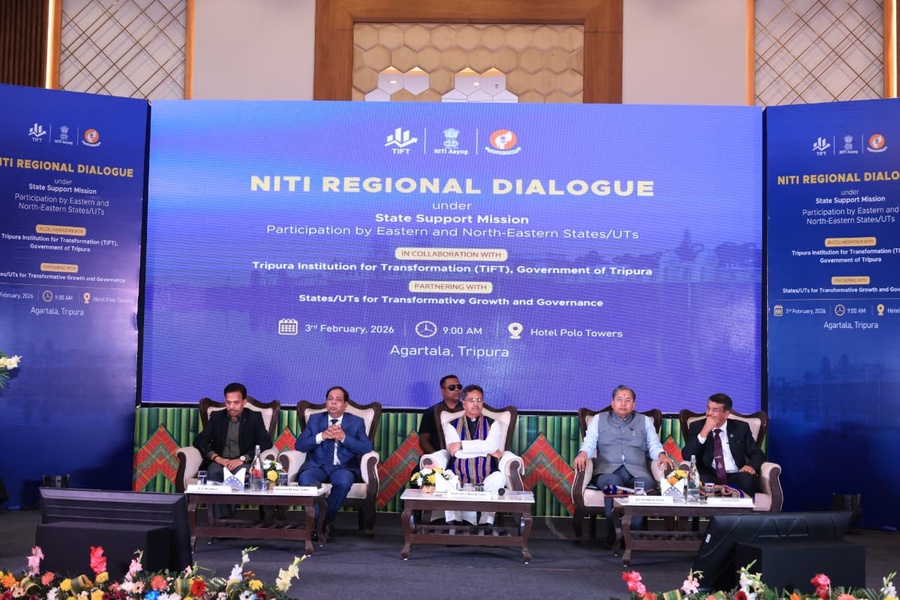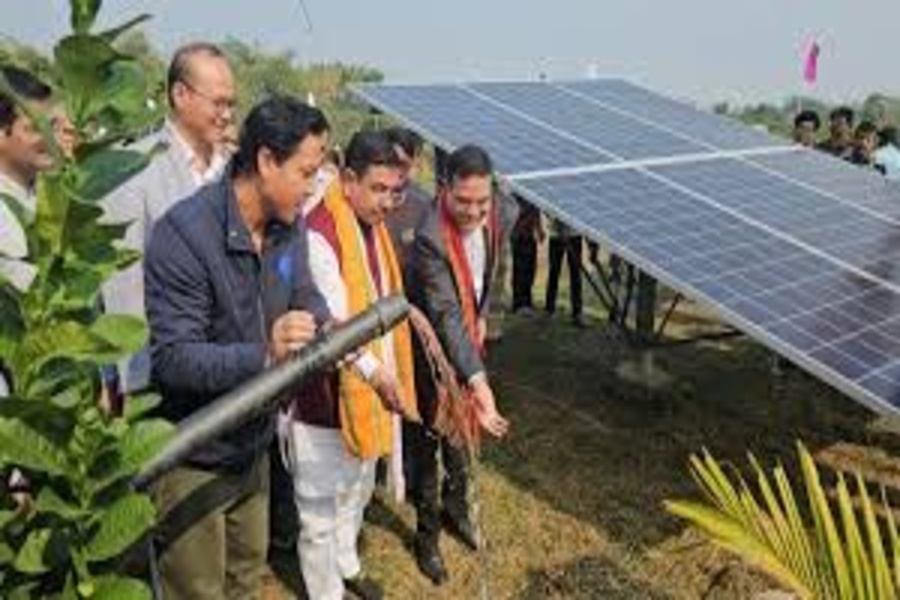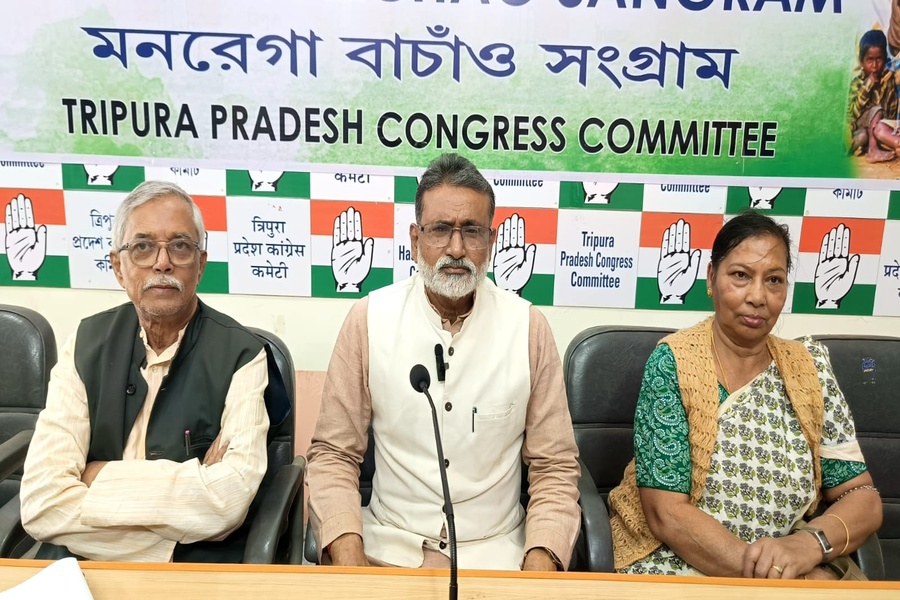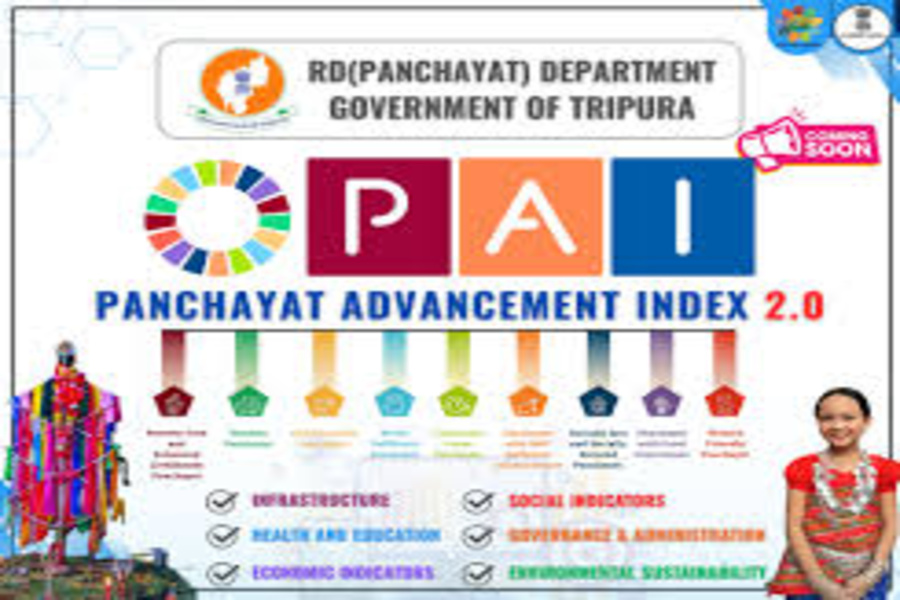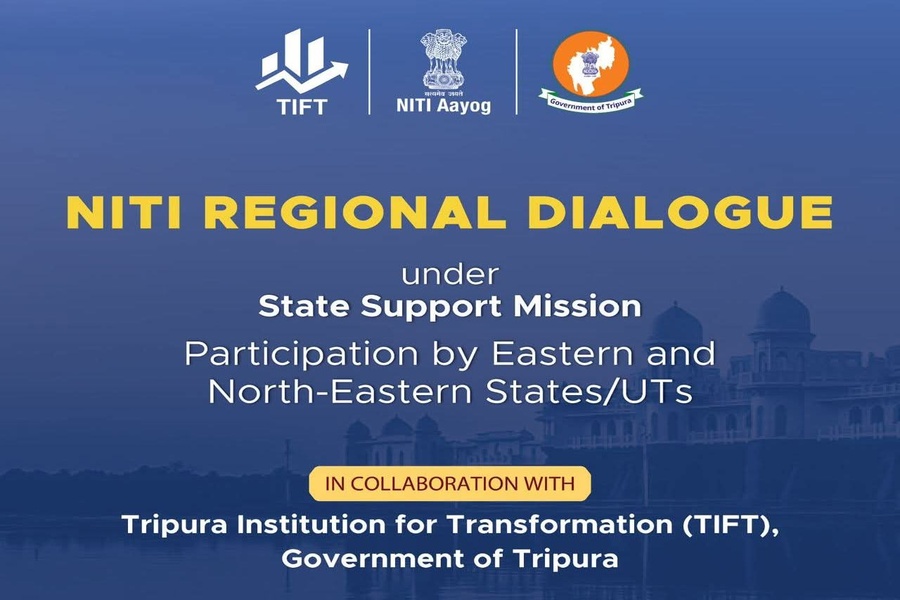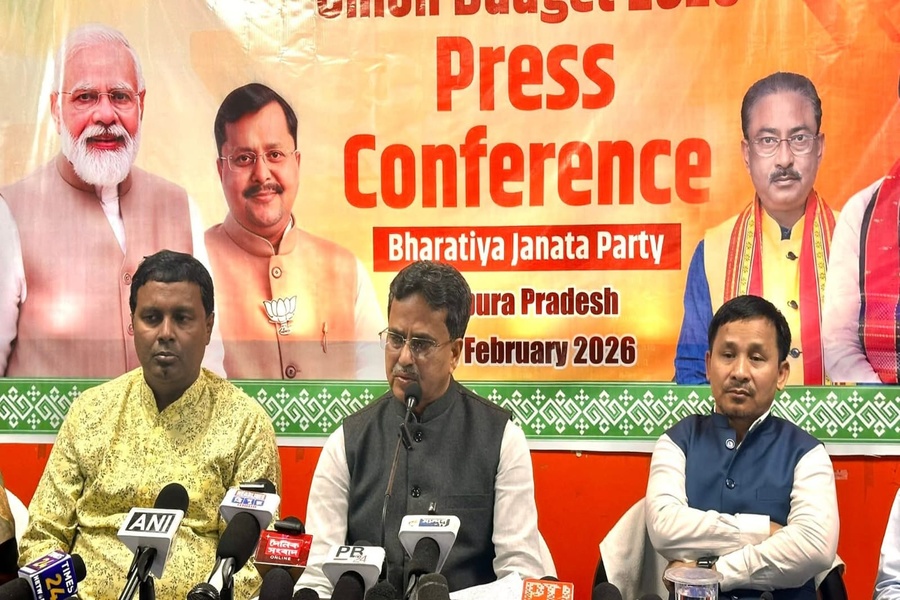Tripura Chief Minister Dr. Manik Saha today asserted that no one involved in the drug trade—regardless of their societal stature—will be spared under the law.
He also revealed that the state government is contemplating a reform to mandate marriage registration before the actual ceremony to prevent child marriages.
“Many influential individuals are involved in the drug trade purely for monetary gain. But once caught in the legal net, no one will be able to save them,” said Dr. Saha, speaking at an awareness programme under the Drug-Free India Campaign and the Prevention of Child Marriage initiative, held at Gandhigram Higher Secondary School Ground in Bamutia Block of West District.
Stressing the urgency of awareness campaigns, Dr. Saha said, “Initiatives like these on drug abuse and child marriage are extremely crucial today. Addiction was not a pressing issue in the state earlier, but over the past 40 years, it has cast a dark shadow across Tripura.”
The Chief Minister credited the central government led by Prime Minister Narendra Modi and the state’s BJP government for implementing a strict zero-tolerance policy towards drugs.
“Union Home Minister Amit Shah is personally monitoring the situation and regularly reviewing progress,” he added.
Dr. Saha, who also holds the Home portfolio, stated that the state government is working in line with directives from the Centre. “Multiple agencies, including the police, are intensifying their operations. Large quantities of narcotics are being seized, and the volume of these seizures has increased significantly. Numerous individuals have been arrested under the NDPS Act and are facing legal action,” he said.
He further instructed law enforcement agencies not to show any leniency to drug offenders. “These people are not only destroying themselves but are also ruining society and the state. Even prominent people with free access to various circles are part of this network. But once they are caught, the law will take its course.”
Dr. Saha also called for heightened awareness around public health issues such as thalassemia, tuberculosis, and HIV/AIDS, emphasizing the government's holistic approach to tackling social and health-related challenges in the state.

